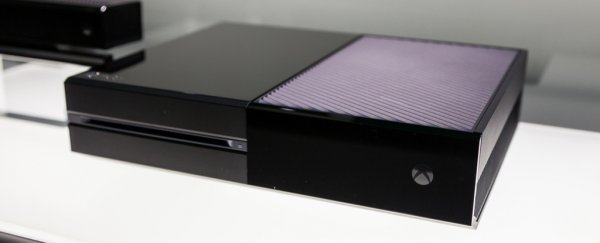New comments made by Microsoft's Xbox chief Phil Spencer have raised eyebrows across the video game community, with the company acknowledging that the direction for the future of its console business could be about to undergo a fundamental shift.
Speaking at an Xbox Spring Showcase event last week, Spencer hinted that in the future the Xbox One, Microsoft's current games console, could receive continual hardware upgrades over its lifetime, rather than being limited to particular hardware for a console generation lasting several years, like its predecessors.
While Microsoft hasn't exactly explained what its product 'road map' will look like, it's possible the changes could mean you can swap out and install new components like in a PC. Although it's perhaps more likely the future Xbox One line will receive annual, iterative updates in the form of slightly tweaked models, much like how Apple releases a new flagship iPhone every year.
"We see on other platforms whether it be mobile or PC that you get a continuous innovation that you rarely see on console," Spencer told media. "Consoles lock the hardware and the software platforms together at the beginning of the generation. Then you ride the generation out for seven or so years, while other ecosystems are getting better, faster, stronger. And then you wait for the next big step function."
While breaking this hardware lock seems to make a lot of sense, the notion that consoles could receive iterative or even annual component upgrades like PCs or smartphones is a major paradigm shift in the world of video game consoles.
Ever since the technology emerged decades ago, consoles have been defined by their era-spanning generations, during which gamers could buy one machine and play new releases on it over the course of several years.
According to Spencer, that could all be about to change for Microsoft, thanks to the company's recent efforts to align its Xbox operating system (OS) with Windows 10, its latest PC OS.
"When you look at the console space, I believe we will see more hardware innovation… than we've ever seen," he said. "You'll actually see us come out with new hardware capability during a generation allowing the same games to run backward and forward compatible because we have a Universal Windows Application running on top of the Universal Windows Platform that allows us to focus more and more on hardware innovation without invalidating the games that run on that platform."
While it's kind of sad to think era-defining console generations might soon be a thing of the past, the iterative upgrade cycle would bring dedicated video game hardware in line with almost all other kinds of digital products – with smartphones in particular standing out as a product people refresh much more regularly than every seven years or so.
In that sense, it seems kind of weird in retrospect that consumers have been happy with games-playing hardware that's frozen in time for much of its shelf life, marred by the potential of being noticeably ancient and slow by the time consoles reach the latter years of their lifespan.
"We look at these other ecosystems out there like mobile, tablet and PC and we see that they have a very continuous evolution cycle in hardware, whereas between console generations most of the evolution is making it cheaper and potentially making it smaller," Spencer told Colin Campbell at Polygon. "Both are meaningful but don't make the games play any better. If you look at PC specifically and see the evolution that happens there, there's no reason why console can't ride that same curve."
Of course, while the longevity of hardware generations did mean your tech ran the risk of getting old on you – provided it didn't succumb to the ravages of malfunction, that is – at least it also ensured your console purchase bought some staying power, running new software for years on end. Reading between the lines, for consumers that capability could also be disappearing too.
In other words, these days people drop several hundred dollars on a console purchase, safe in the knowledge that they've invested in a device that should last them an entire console generation. The new proposal from Microsoft could mean that once you've paid for your console, you might have to be willing to spend more money over the course of its life to continuously upgrade it – or to buy an updated model sooner to be able to play newer, more technically demanding games.
"For consoles in general it's more important now than it's ever been, because you have so many of these other platforms that are around," Spencer told Polygon. "It used to be that when you bought your console you were way ahead of the price performance curve by so much, relative to a PC. But now PCs are inexpensive and your phones are getting more and more capable."
